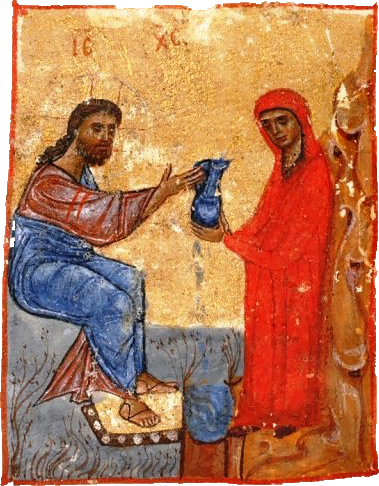
Our responsorial psalm invites us to be one with the Father through the redemptive actions of his Son, Jesus. We heard the story of the Prodigal Son earlier this week and now turn to the story of the Samarian Woman at the Well. The Prodigal Son spoke to two natures exemplified by the two sons: one son who does it all right in his obedience but is wrong in understanding Godly love and the nature of forgiveness and the other son who does it all wrong in his gluttonous squandering but comes to understand God’s unending merciful love and forgiveness. Another type of forgiveness and love can be seen in the interchange between Jesus and the Samaritan woman. It would be easy for Jesus to consider the woman an unrepentant sinner, unworthy to be in his presence or speak with him. That would align with the historical dissonance between the Jews and Samaritans. And yet, Jesus neither condemns nor judges her; rather, he offers her his unconditional mercy, compassion, and love. He treats her as an equal without reservation or regard for her ethnicity, social status, or religious beliefs. The common thread in these stories is one of love and forgiveness. We are called to repentance, which for most of us involves forgiveness of actions taken or not taken. It’s a call of return; it’s a call of immersion in God’s love; it’s a call to begin anew.
